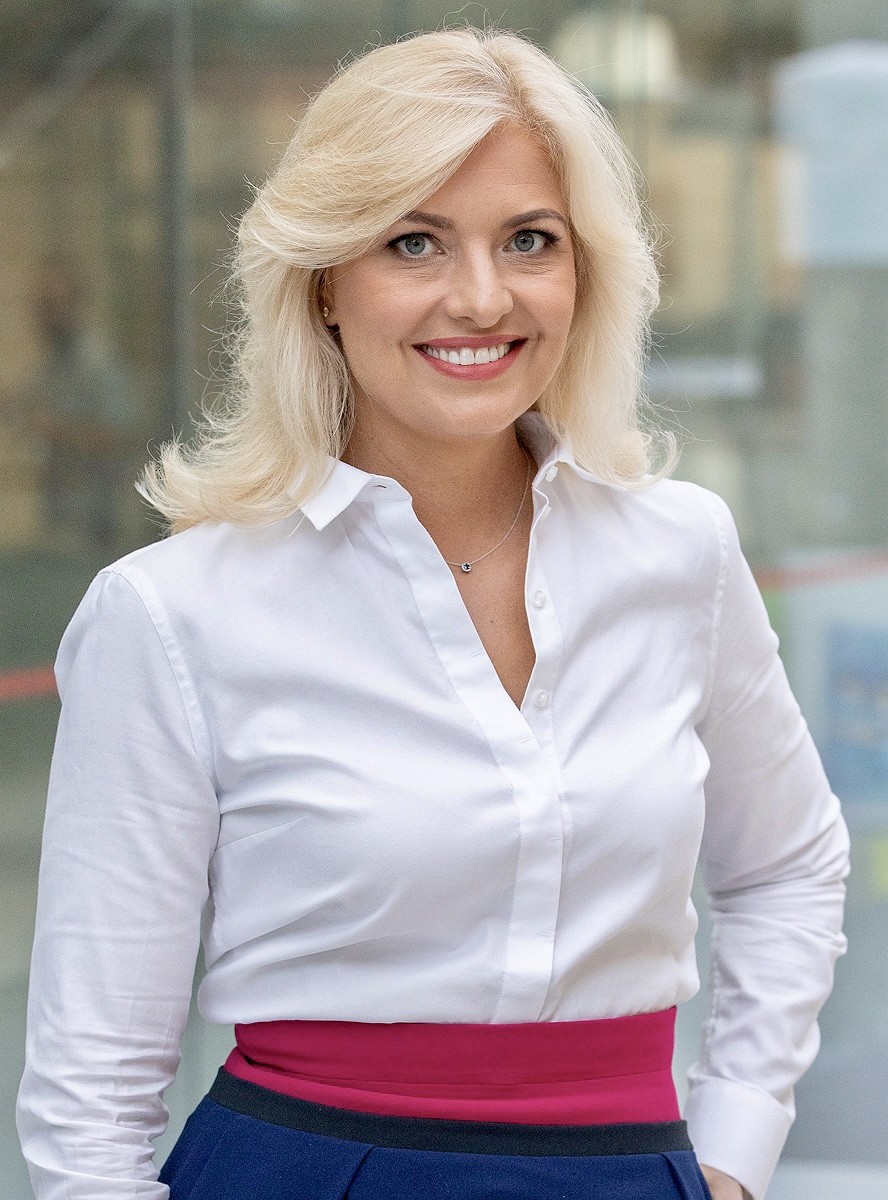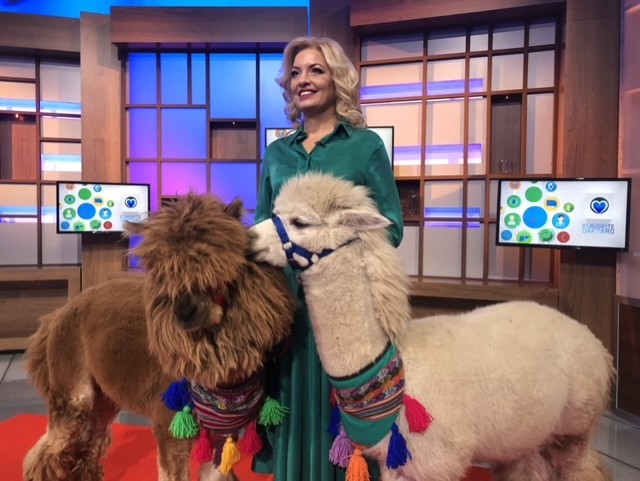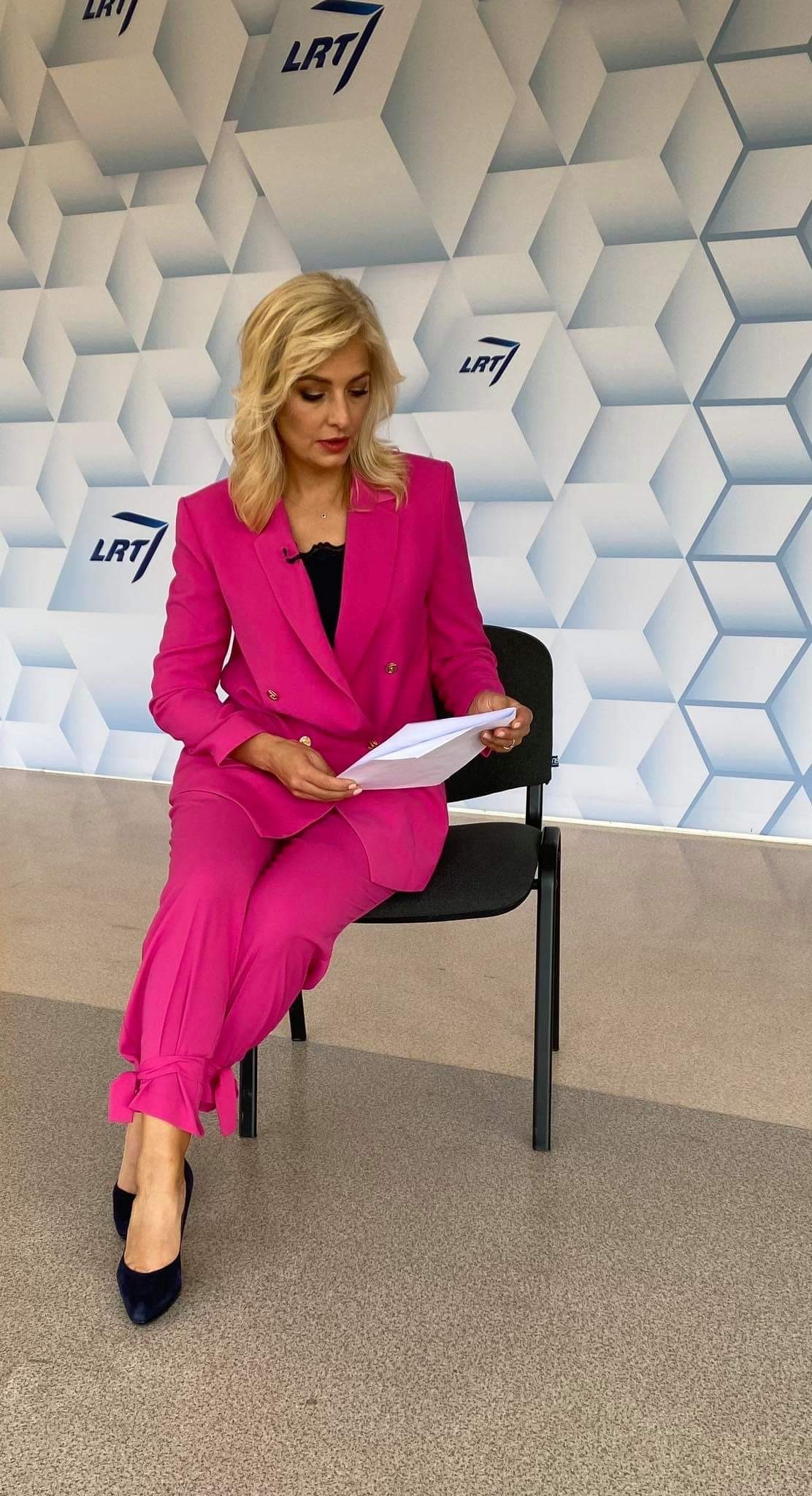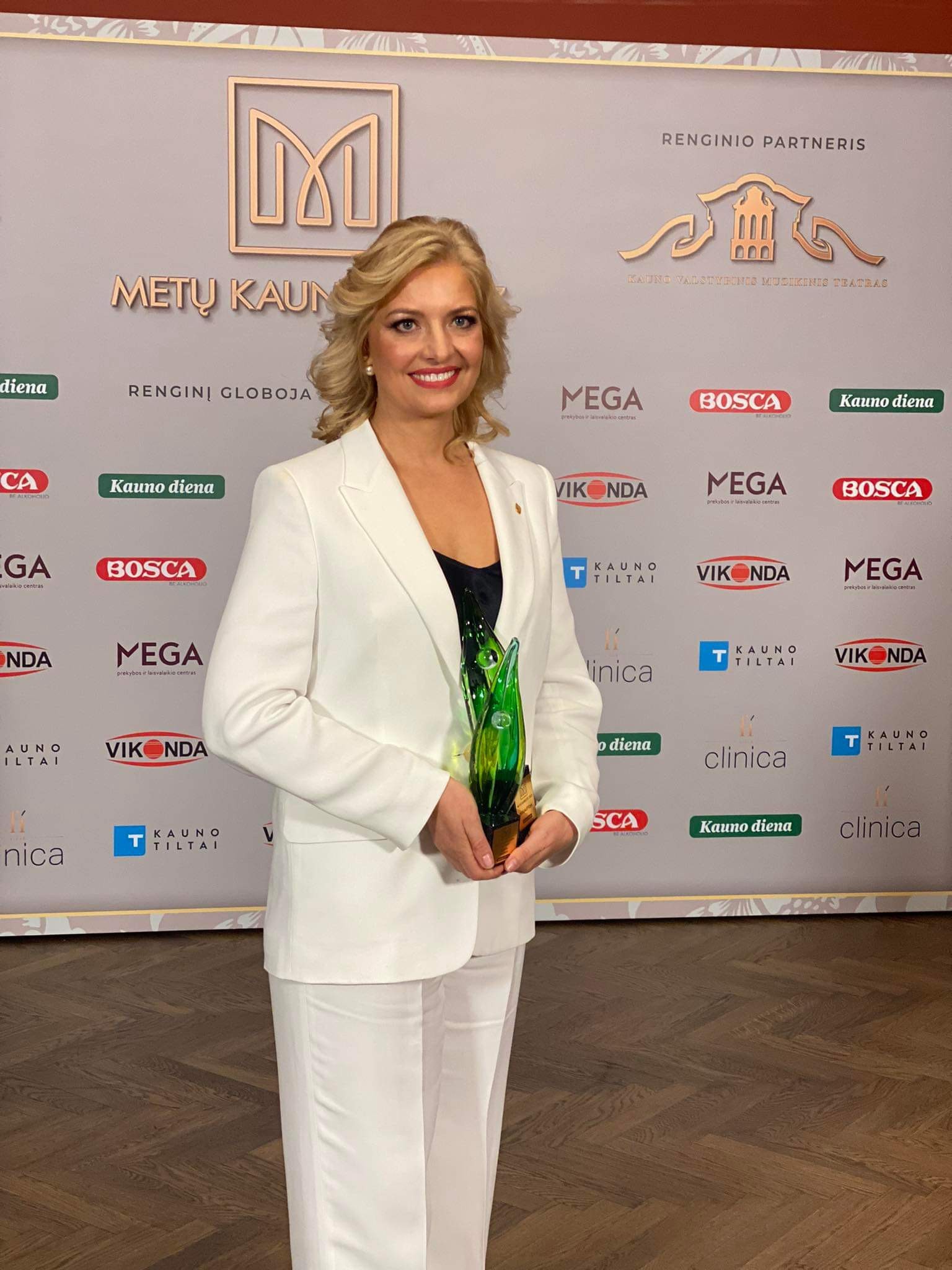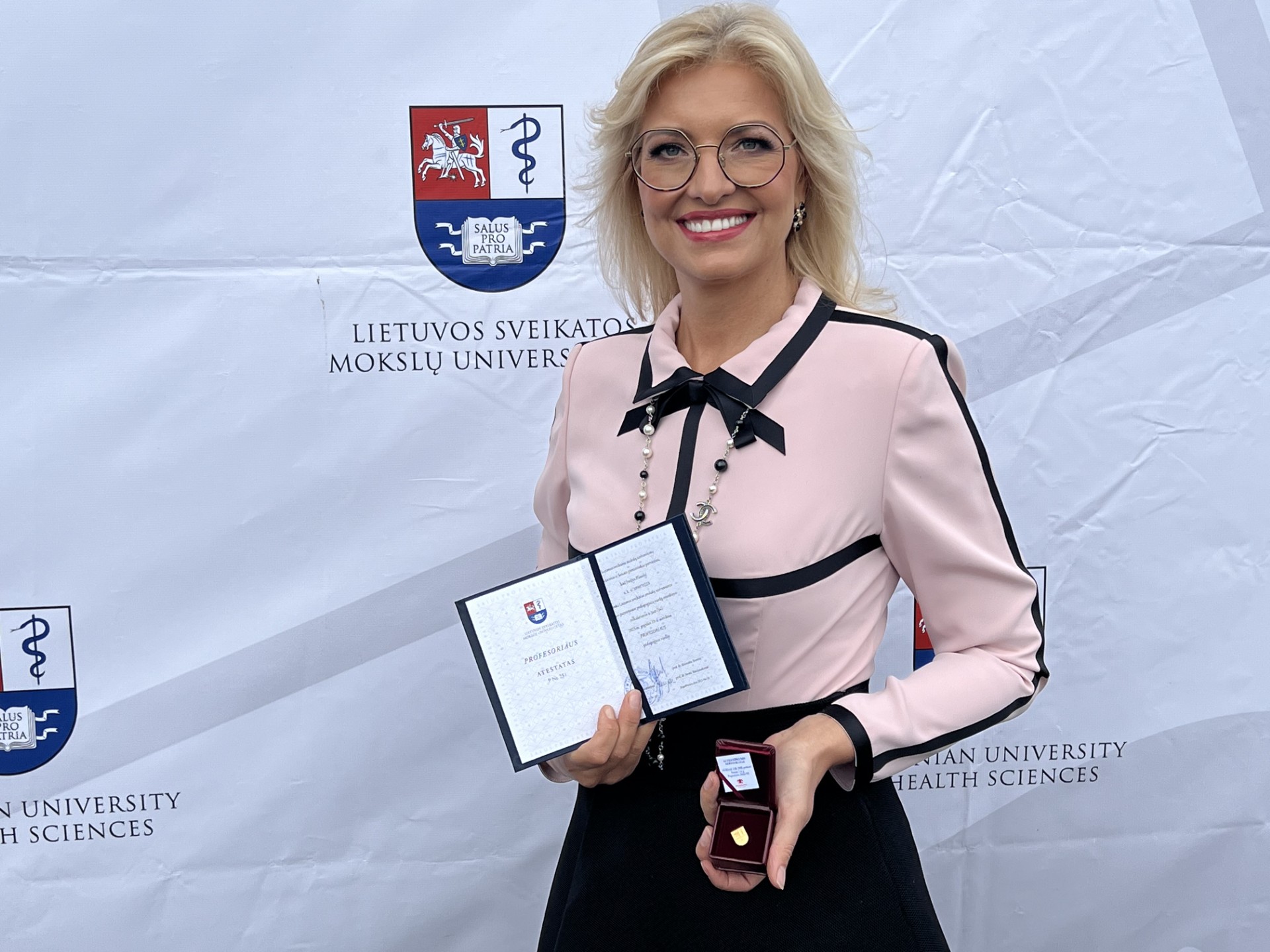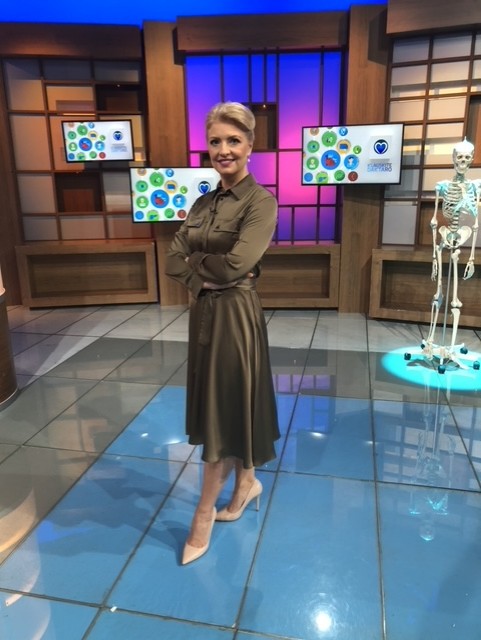LSMU Alumna Prof. J. Plisienė: My Classmates Brought the Greatest Value to my Studies
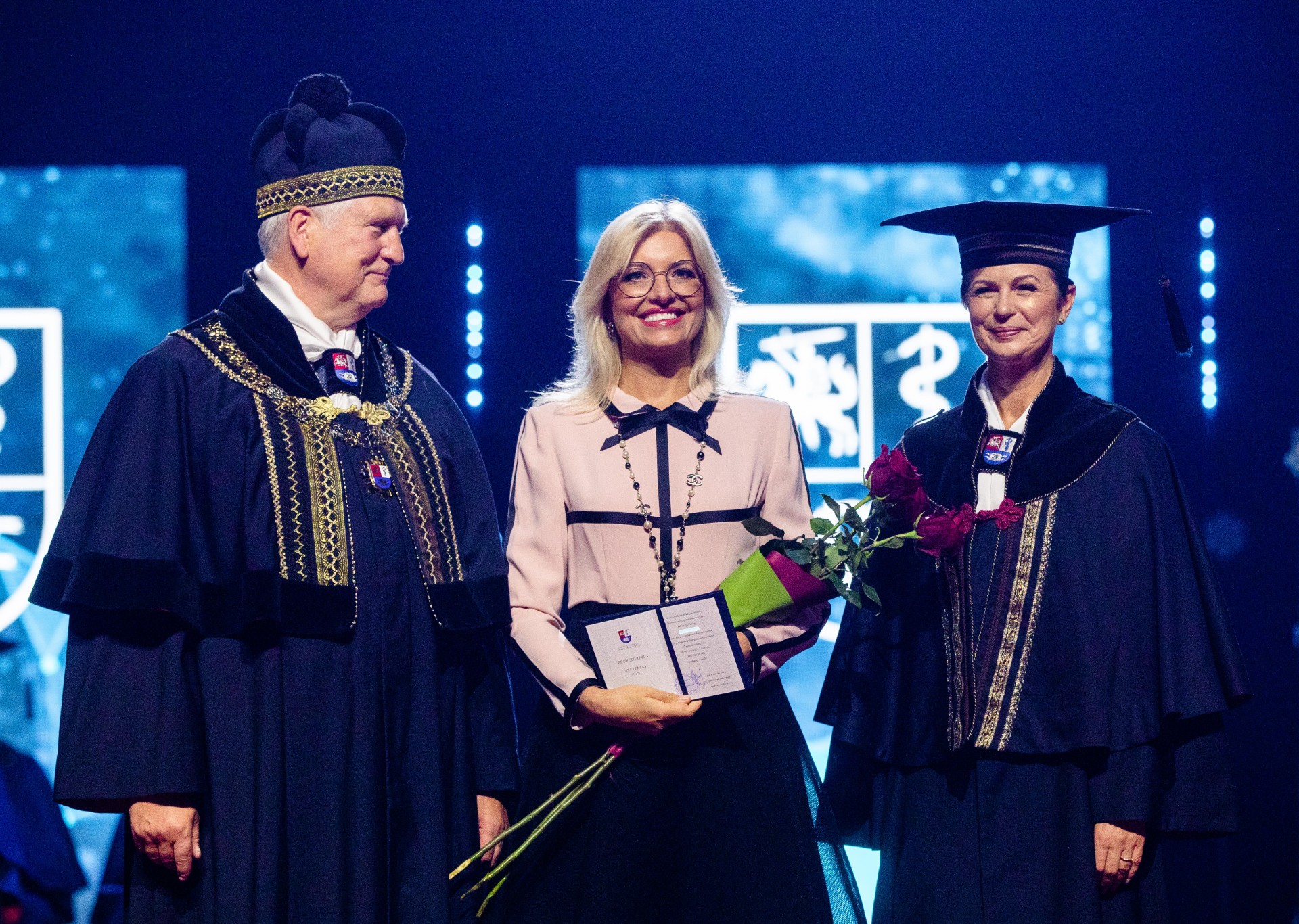
Jurgita Plisienė, an alumna of the Lithuanian University of Health Sciences (LSMU), now a professor and a well-known cardiologist, is nostalgic about her time at the University, with some memories causing more mixed or sad feelings. Nonetheless, bad things have been forgotten, and what’s left are friends from her class that are important in her life even today. She says that she considers the people she met at the University to be the greatest value of her studies, and the bond between them still exists to this day.
Professor, why did you choose cardiology out of all the possible fields of medicine? Do you feel that you have found your path?
It seems that I knew from birth that I would grow up to become a doctor. It’s very strange, because there weren’t many doctors in my family, so I didn’t have the chance to witness medicine up close. But it was obvious that I was going to be a doctor when I was at school. Even in my earlier years at the University, I wasn’t sure about the field to specialise in. Perhaps it was only after the cardiology cycle that I realised that this was a field that offered a lot of opportunities to fulfil oneself. Cardiology is a very broad specialty ranging from prevention to intervention, and I thought that I would find the best place for me to fulfil myself. If I had to choose again, I would choose the same path without giving it a second thought.
What is the most vivid aspect of your studies you remember?
Like everyone else, I was not only learning, but also living the life of a student. I still feel quite stunned when I remember our on-call midwifery cycle. The rule was that if at least one of the students who are on duty fell asleep and missed that night’s delivery, none of the students would be credited. We would spend the night in the training class, with one of us on duty and the others sleeping on wooden benches “covered” with teaching posters. Nowadays this would be even impossible to imagine, but we couldn’t even think of complaining. Of course, there were wonderful professors, real Teachers in the true sense of the world. They were our role models and sources of inspiration for the future. I was lucky to have had wonderful friends in my class. We still maintain close contact with them today. We have a tradition of meeting at least twice a year. One of those times is always at my holiday home – we get together, bring our spouses, interact, and have fun. I am very happy because if I have a problem or need support, I can always turn to them. Even in the election of the “Kaunas Woman of the Year”, my classmates were my biggest supporters. Since the beginning of my studies, we have been like one inseparable bunch. I am very proud of that and consider it to be the greatest value of my studies.
How did you start your professional career?
Times were different when I was in cardiology residency. Both salaries and scholarships were very low. At that time, I was already married, we were a young family, both doctors, so we had to think about what we were going to do for a living. We decided that my path was to be a cardiologist and my husband chose business, so his path as a doctor was over. There was no doubt that I would never trade my cardiology residency for something else. This is where I started. Then I did my PhD in Germany, since I had contacts and I spoke German well. I did very interesting research and clinical work there and defended my thesis in two years. Then I returned to Kaunas Clinics, and then there was another shift – I switched to Šiauliai Republican Hospital, where I headed the Cardiovascular Centre for three years, and since 2016 I have been the Head of the Consultation and Diagnostic Department. I have also worked in Departments teaching fundamental subjects. I taught Histology for a year and worked at the Institute of Anatomy. It was very interesting to revisit anatomy again, and I tried to teach the students from a clinical perspective, so I think they found it useful and interesting too.
Your medical studies led you to television. Had you ever imagined that as a doctor you would embark on such an adventure?
I suspect it had been programmed since childhood, because I used to host events and act in plays at school. I love being on stage. At the beginning, I was invited to be a guest speaker on the Ask the Doctor show. After a while, a producer called and said he wanted to see me as a host. It took me quite a while to think this through, as one might hear people in the academic world saying that serious professors don’t do the show because they have more important things to do. There was a lot of hesitation, but I also saw a great sense in hosting the show. After all, television is an effective “tool” that to reach a huge audience, and if you are really talking about important things, if at least a few people have recognised the symptoms of a disease, saw a doctor on time, or have even recognised life-threatening situations, then there is great sense in doing that.
You can’t reach as many people through lectures and conferences as you can through television. If you stay true to your values, maintain a strong moral backbone, and don’t just become a publicity face, then you can use this opportunity to do something really good. I am grateful to fate that I ended up on that show and that I was able to see the inner kitchen of television. It was a very interesting and enriching experience.
What advice could you share with current or future students of the Faculty of Medicine at LSMU?
If you have already started studying medicine, it’s probably for good reason. It’s all about knowing what you want, seeing the goal and being consistent in achieving it. And even if things don’t always work out the way you want them to, there are always opportunities, so you have to be brave and take them. This said, I encourage you to stay true to yourself, your values, your humanity, and remain authentic and unique the way you are. You should seek to become a better version of yourself, and not compare yourself to others. For a doctor, it is also very important to cherish the fundamental love to people, because a doctor’s work requires sacrifice, empathy, and compassion.
What would you wish for the LSMU alumni community?
I would like us to be a community that shares broad interests and focus, and supports each other. Our work is not easy, so support, a kind word, an encouraging look, help a lot. I just wish for more sincere communication and a bit less focus on personal importance.
Last question: what is your secret to looking so good?
Thank you for the kind words. I don’t do anything special, but I would be lying if I said it was just genetics. Of course, I look after myself. Dance, sports, long walks in the woods, massages, and regular skin care help me a lot. Now I think I would like to have more time for myself, but I still don’t know how to do it, as I still prioritise work over SPA treatments. But I guess the most important thing is your inner state and the energy one spreads. If you are in harmony and at peace with yourself, if you love life and choose to be happy, then everything is reflected in your appearance.

